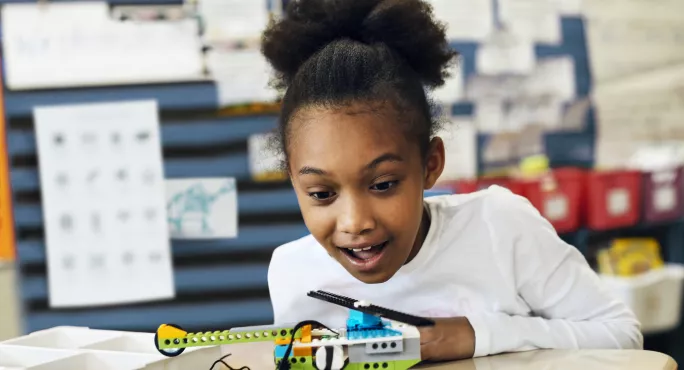If the technological revolution is to continue, where is the educational revolution to match?
The world is reshaping and redefining itself at a rate quicker than ever before. Robotics, machine learning, the internet and, with it, the commoditisation of access to information have made unprecedented changes to our society.
These changes of the so-called Fourth Industrial Revolution are demanding new ways of working and reprioritising skills that go far beyond mere knowledge retention. As traditional business models evolve to respond to these changes, we must equip ourselves with a workforce that can keep pace.
Today’s possibilities would have seemed like a fantasy to our grandparents when they were young. Yet despite how far we’ve come, children are still being taught in the same ways as their parents and grandparents were.
Our education systems have failed to adapt to our changing world. School itself, with its emphasis on standardised testing of knowledge retention instead of real-world skills, is compromising students’ excitement and love of learning over time, as a recent Gallup poll shows.
If education systems stay set in their ways, our children will become deficient of the complex breadth of skills needed to tackle the challenges posed by the rapidly changing Fourth Industrial Revolution, let alone make the most of the exciting and unprecedented opportunities that it will offer. This new age should not be a source of intimidation but should inspire innovation, creativity, and adaptability. For this to happen, our children must be equipped with the breadth of skills that will be essential for them to learn from, and succeed in, the unpredictable world they will inherit.
To re-define how our children learn and to empower them for the future, parents, teachers, policy-makers, and businesses must stop overlooking a powerful part of the solution: learning through play. In play, we learn to create, collaborate and solve problems in ways that bolster traditional (and critical) subject learning in schools.
There is a growing amount of research that demonstrates the importance of play to achieve meaningful and deeper learning that prepares us for later life. In fact, the seven top characteristics of success at Google are all skills that can be nurtured by teachers and parents in play-based learning: being a good coach, communicating, listening, possessing insights into others, having empathy, problem-solving and drawing connections.
Ensuring that the generations to come can champion these skills will be vital for our common future, and some leading education institutions, such as Harvard University, the Massachusetts Institute of Technology and Tufts University, have already pledged to shift to new transcripts that provide more qualitative, competency-based feedback. We need this momentum to continue up and down the education system, if children are to be confident in the knowledge that their emotional, cognitive, physical, social and creative skills - which we have identified as crucial for a child’s holistic development - will be valued from their first day in school to their last day in the workplace.
Wherever they are, children who play confront new challenges every day, and in turn create new solutions. It’s a process that we can all learn from. “How do I beat this puzzle?”, “How can I design a tougher maze?”, “How can I work with my classmates to refine our model for the science fair?” While children crave overcoming challenges, the task of changing how they are educated is not one they can accomplish alone.
There is no easy answer, especially when attitudes to education are so entrenched. Society has developed an obsession for measuring how much knowledge children have acquired from regimented, standardised testing. One size will not fit all, as a child’s growth and development are as complex as the worlds they imagine. Not only that, but the challenge reaches far beyond schools themselves. It’s up to all of us: parents, carers, businesses and governments.
This is precisely why at the Lego idea conference, we will bring together 400 leaders, researchers, innovators and government representatives to discuss the power of learning through play in unlocking our children’s potential for making the most of what lies ahead. By developing learning through play environments, at home, in schools, in communities and in Early Childhood Development programmes, the Lego Foundation is committing to redesigning education as a means of empowering children to become creative, engaged, lifelong learners.
From my interactions with some of the thousands of children we reach across the world, from Mexico to South Africa and Ukraine, I have witnessed ingenuity and creativity that we should all aspire to. Imagine how many more ideas would be unlocked if we made more room for their play in our schools, communities and homes. We must take an active role in empowering our children to learn through play if we are to raise the next generation of lifelong learners equipped for the reality of today and tomorrow.
John Goodwin is the CEO of the Lego Foundation
- To find out why an educational psychologist disagrees and says play has no place in the classroom, pick up tomorrow’s edition of Tes magazine
